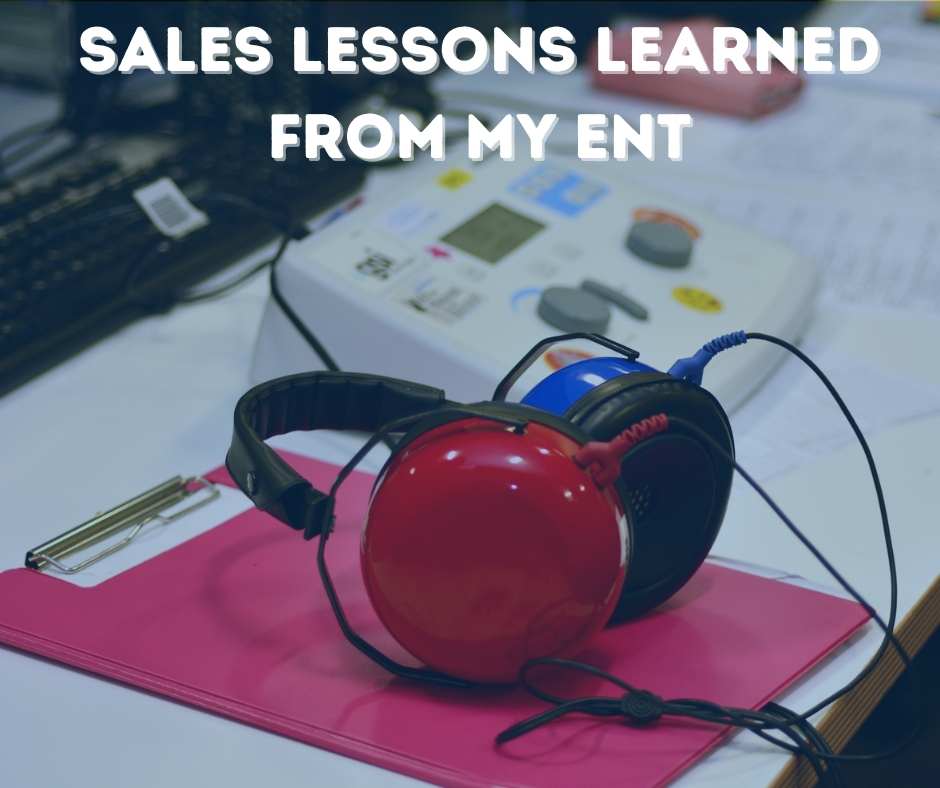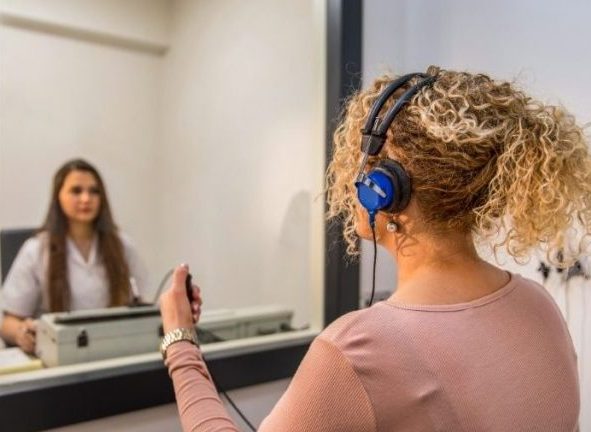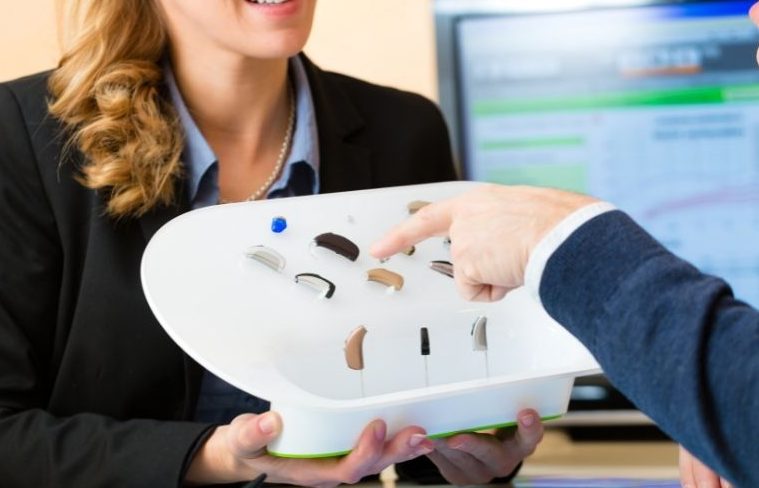
You’re not going to “sell” anybody. That was the very first sentence out of the sales trainer’s mouth on my very first day of sales training. With brows furrowed, a few mouths fell open…I mean, weren’t we here to learn how to sell? He wanted to get our attention, which he did. Eventually, we figured out what he wanted us to learn is how to skillfully guide prospects through the buying process and unlearn the stereotype about salespeople beating people over the head to buy something they don’t need or want. (When did that ever actually work anyway?) He further clarified the point by explaining that if you look up the word manipulate in the dictionary, it simply means to skillfully manage. We often hear this point referred to as – everybody wants to buy but nobody wants to be sold. I recently had a very interesting experience in which I was immersed in this lesson as the buyer.

The Lesson: What Not To Do in Sales
I suspected I needed hearing aids so I set up a hearing test at my ear, nose and throat (ENT) doctor’s office. They put me in a padded room and had me listen to all kinds of tones, beeps and words. Sure enough, I flunked the test. My ENT doctor interpreted the little graph on the piece of paper and recommended hearing aids. He explained that he had tried them himself and how well they help with ambient noise like in a restaurant. He is completely bald so it was not difficult to see his ears but I could not see any hearing aids.
Me: They must be really small because I can’t see them.
ENT Dr: Well, I don’t wear them anymore.
Me: Hmm, why not?
ENT Dr: Because I don’t have any hair and you can see them.
Me: (long pause)…That’s your sales pitch?
I already was not very motivated to get hearing aids so I decided for the time being, I would not get them. I rationalized that my hearing wasn’t really all that bad and I didn’t want to go to the trouble of dealing with them any more than my ENT doctor did.
The Sales Experience: What To Do
About two years later, an ad came across my desk for a free hearing test at a place called Miracle Ear. I went to check it out because part of me still suspected that l might need hearing aids. I had a very different experience than with the ENT doctor. First, they have you answer a craftily designed questionnaire that forces you to think about how your hearing might be affecting your quality of life. They asked questions about things like:
- How often do your family and friends yell at you for having to repeat the same thing over and over?
- Do your neighbors complain about the decibel volume on your TV?
This questionnaire was causing me to have flashbacks to when I was seven years old and my brother and I were in the backseat of the car trying to tell my grandfather that he was driving 20 miles down the road with the left turn signal on.
The person who conducted the hearing test was a hearing specialist, not a doctor and I noticed he was wearing hearing aids. I asked him and he told me that he had been wearing hearing aids for 19 years. His wife had them too. That was his sales pitch. He didn’t have to use words to tell me that he believed in his product. Then they put me in a similar padded room and conducted a similar hearing test. Sure enough, I flunked the hearing test again and he recommended hearing aids. But this time, the hearing specialist didn’t stop at interpreting the little graph on the piece of paper. He opened a box of actual hearing aids and got me to practice taking them on and off of a fake plastic ear. He programmed the demo hearing aids on his computer to customize them to my hearing test. Then he put one in each ear and explained that we were going to test them out. He walked into the hall and started asking me questions in a normal tone of voice. I remember thinking the process was good because if I couldn’t hear him, I would not be able to give the correct answers to the questions. I thought he must be standing right outside the door because I could hear him so well, but when I looked out the door, he was actually standing way down the hall!

Then we went outside to the sidewalk in front of the building where there was a lot of noise. Cars were running a few feet away, driving by on the freeway, people talking, wind blowing, music playing, doors closing and birds chirping. He stood about 10 feet away on the sidewalk and spoke in a normal tone of voice. I could hear him perfectly. It was sinking in on me just how much of life I’d been missing. I found out that I could get hearing aids with Bluetooth for my cell phone and that they make a type that can be charged the same way as your cell phone. You don’t even have to put in batteries. I was so sold that I wanted to take the demo model home with me, but he said I had to wait until my new ones came in.
Buying vs. Selling
When I was at the ENT appointment, I never made it out of phase one of the buying process, problem, or need recognition. I was still in denial. The Miracle Ear hearing specialist built trust and engagement by skillfully guiding me through the buying (NOT selling) process so that I thought buying hearing aids was my idea. Understanding that difference is vital to any sales team’s success and is never more important than in telemarketing, where our lead generation specialists need to be skilled in doing that, and doing it remotely over the phone.
The hearing specialist ‘sold’ me by creating an opportunity for me to buy using the experience of what hearing aids would do for me. Without that, I probably would still be missing so much that is happening around me. No wonder they named it Miracle Ear. That is the perfect name.

About the Author

Tracie Chancellor, CEO and Founder of TeleReach Corporate, national business to business call center specializing in sales appointment setting and lead generation, based in Houston, Texas. Chancellor is an MBA graduate of the University of Houston with over 20 years hands-on sales and marketing experience, working with privately-held businesses, universities, non-profit organizations, as well as Fortune businesses in the business to business marketing space.

